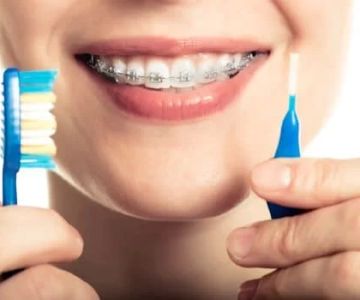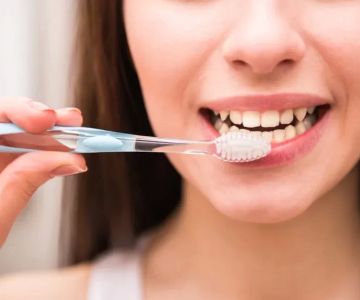Introduction to Cavity Prevention and Oral Hygiene
Cavities, or dental caries, are one of the most common health problems faced by individuals in the United States. Despite advances in dental care, many Americans continue to experience cavities due to inadequate oral hygiene habits. This article aims to educate readers on how proper oral hygiene can not only prevent cavities but also enhance overall dental health. Understanding the early signs, risk factors, and preventative measures are crucial in combating this prevalent issue.
The Science Behind Cavities and Dental Decay
Cavities form when the enamel, the hard outer layer of your teeth, is destroyed by acidic substances produced by bacteria in the mouth. These bacteria feed on the sugars found in food and drinks, creating acids that erode the enamel. Key to preventing this destructive process is maintaining a robust oral hygiene routine that limits the accumulation of these harmful acids.
Daily Brushing: Your First Line of Defense
Brushing your teeth at least twice a day with fluoride toothpaste is foundational to good oral hygiene. Fluoride helps to strengthen tooth enamel and combat the acids produced by bacteria in the mouth. It is advisable to brush once in the morning and once before bedtime, spending at least two minutes each session to ensure all tooth surfaces are thoroughly cleaned.
The Role of Flossing in Preventing Cavities
While brushing is crucial, it cannot remove all the food particles and plaque between your teeth. Flossing daily complements brushing by removing debris from areas that a toothbrush can't reach. According to dental experts, flossing regularly can prevent periodontal disease and cavities between the teeth, areas commonly overlooked in daily oral care routines.
The Importance of Regular Dental Check-ups
Regular visits to a dentist are essential for keeping cavities at bay. These visits help in the early detection and treatment of cavities, tartar build-up, and other dental issues. Dentists also provide professional cleanings which remove plaque build-up that regular brushing and flossing might miss. Ideally, a dental check-up should be scheduled every six months.
Balancing Your Diet to Fight Cavities
Diet plays a significant role in oral health. Consumption of high-sugar foods and beverages significantly contributes to the formation of cavities. Balancing your diet by limiting sugary snacks and drinks, and increasing intake of fruits, vegetables, and water helps maintain a healthier oral environment less conducive to cavities.
Conclusion: Embracing Comprehensive Oral Care
In conclusion, preventing cavities is a multifaceted approach that involves diligent daily hygiene, regular dental visits, and a balanced diet. Embracing these habits will not just prevent cavities but also promote overall dental health. Start implementing these practices today and remember, healthy teeth contribute to your overall well-being. By visiting Dentistry Toothtruth you can find more useful tips and guidance tailored to maintaining your oral health at its best.







 Westgate Dental Arts3.0 (2 review)
Westgate Dental Arts3.0 (2 review) Coventry Family Dental4.0 (247 review)
Coventry Family Dental4.0 (247 review) Familia Dental3.0 (1028 review)
Familia Dental3.0 (1028 review) Dr. Daniel S. Fife, DDS4.0 (31 review)
Dr. Daniel S. Fife, DDS4.0 (31 review) Dentistry At Suburban Square: Michael I. Wollock, DMD4.0 (1228 review)
Dentistry At Suburban Square: Michael I. Wollock, DMD4.0 (1228 review) Comfort Care Dental4.0 (1156 review)
Comfort Care Dental4.0 (1156 review) The Importance of Oral Health Education During Pregnancy for a Healthy Pregnancy
The Importance of Oral Health Education During Pregnancy for a Healthy Pregnancy Why Skipping Dental Checkups Can Lead to Bigger Oral Health Problems
Why Skipping Dental Checkups Can Lead to Bigger Oral Health Problems Best Tips for Brushing Your Teeth Properly for Healthy Gums: Essential Techniques for Oral Health
Best Tips for Brushing Your Teeth Properly for Healthy Gums: Essential Techniques for Oral Health Advantages of Porcelain Dental Restorations
Advantages of Porcelain Dental Restorations How Can Diabetes Cause Tooth and Gum Problems? Preventing and Managing Oral Health Issues
How Can Diabetes Cause Tooth and Gum Problems? Preventing and Managing Oral Health Issues Healthy Habits for Promoting Good Oral Health and Hygiene: Tips for a Healthy Smile
Healthy Habits for Promoting Good Oral Health and Hygiene: Tips for a Healthy Smile